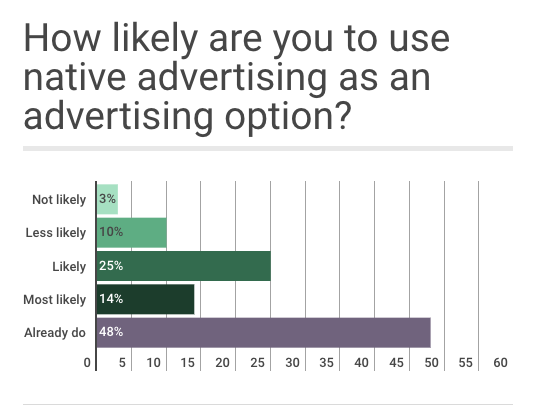Last month, the Native Advertising Institute (NAI) and the International News Media Association (INMA) released “Native Advertising Trends 2016: The News Media Industry,” a report exploring global native advertising trends within the news industry.
Native ads are labeled differently across media outlets; they are commonly referred to as advertisements, featured content, sponsored content, suggested posts, or promoted content. In each case, they are “paid advertising where the ad matches the form, feel, function, and quality of the content of the media on which it appears,” meaning they can be presented as text, photos, videos, graphics or social media posts.
The NAI’s mission is “to help publishers, brands and agencies become successful with native advertising.” The 156 media executives surveyed for the report came from 48 different countries and represented organizations that are part of the INMA.
Here are some of its key findings:
1. Native advertising is widely used
Almost half of the publishers surveyed already use native advertising, and many others would consider it as an advertising option. Respondents were asked:
2. Publishers like native ads
While editorial staff continue to be generally more critical of native advertising, 76 percent of media executives feel positive about its use. Only 4 percent said they feel negative.
3. Native advertising revenues are on the rise
Native advertising revenues are expected to increase relative to other sources of advertising come 2018.
4. Audience complaints are not uncommon
Twenty one percent of respondents identified customer complaints as one of the biggest threats to the success of native advertising. In fact, 20 percent of them said they had already received complaints.
5. Proper labelling remains an issue
Although many countries – including Canada – have laws to deal with misleading advertising, 7 percent of respondents said they do not label their native ads at all.
